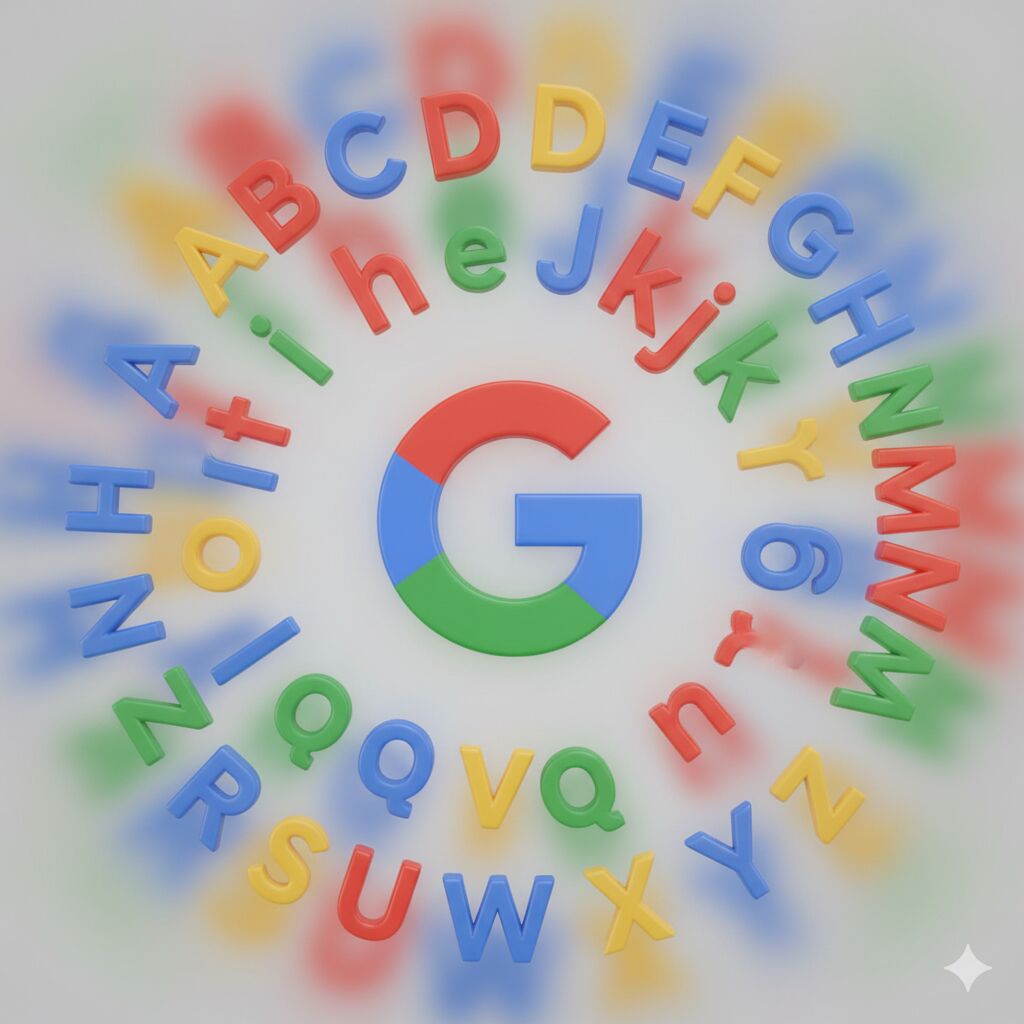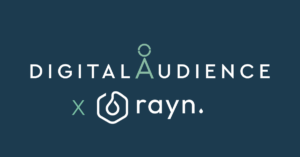Decoding ALPHABET, One Letter At a Time
by Shirley Marschall on 24th Sep 2025 in News

In her latest column, Shirley Matschall takes aim at Google's umbrella company, acrostic style...
Once the U.S. District Court ruled that Google didn’t have to sell its browser, it was only a matter of time before Gemini landed in Chrome. No one thought it would happen this fast…but here we are, just 16 days later, Gemini is in Chrome. Boom! The timing? Right before Q4, feels a lot like “we did it in 2025” box-ticking, but hey, what’s done is done.
Meanwhile, as the outrage over the judge’s decision was still echoing, the same crowd started cheering the Google/Gemini integration even louder. Almost cult-ish cries of “The agentic web has arrived!” are filling the feeds.
That contradiction is pure Google: cheered and cursed in equal measure, while juggling courtrooms, product launches, and yes, record revenues.
Here’s an attempt to decode Google’s parent company ALPHABET, letter by letter.
A is for AI
AI … hardly a topic that needs more discussion, but A is where the alphabet begins. That much is undebatable. The rest? AI as “the most disruptive technology of all time” or just “another tool.” As spectators we can debate. Google can’t.
For Google, the AI race is existential. Competitors, stakeholders, and politicians are breathing down its neck. The choice is binary: move forward or risk a Nokia/BlackBerry fate. Having already found itself in an AI pickle playing catch-up, Alphabet has no appetite for déjà vu. If cannibalising search or burning through cash is what it takes, so be it. In Google-land, AI is here, AI is everywhere: Chrome, Cloud, YouTube… you name it.
The latest move, Gemini in Chrome, was hardly a first-mover move. Microsoft strapped Copilot onto Edge months ago, and anyone could already open ChatGPT in Chrome. In fact, ChatGPT now commands 3–8% of Google’s daily search volume. Doesn’t sound much but that’s roughly the size of Bing.
Does that mean Google’s claim in its search trial was right, that AI has ended its monopoly? Not so fast. After 25 years as the undefeated emperor of search, rivals are finally rattling the cage. But with Chrome still holding ~70% share, plugging Gemini into the browser is a distribution masterstroke. Ok, more accurately: it’s the same old Google playbook… launch late, integrate hard, dominate via scale. If history is a guide, that’s enough to tilt the LLM race in Google’s favour. And enough proof that Google doesn’t need to be first to win a race.
For now, the Gemini/Chrome integration won’t just fuel adoption. It will also stoke fresh rumours of the death of the open web…
L is for Legal
Once you’re officially branded a monopolist, litigation is guaranteed to follow…
This week it’s popcorn-level interesting for ad tech. The U.S. vs. Google ad tech remedies trial kicked off, the judge is hearing testimonies on how to curb Google’s illegal monopoly over ad exchanges and publisher ad servers... will the remedies be as tough as the DOJ’s proposal, or will we see another diluted outcome like the Google search case? We’ll know soon enough.
Existential? For Google? Unlike the search case, this trial isn’t existential. Search is THE cash cow… and that monopoly business is intact after the Chrome/defaults verdict. Google’s ad tech stack, by contrast, may be a monopoly on planet ad tech, but revenue-wise for Google it’s a much smaller fish to fry (maybe 10–12%). Painful? Yes. Fatal? Not even close.
Existential? For the sell-side? Oh yes, and for once, ad tech has a rallying cry. SSPs and publishers are uniting, turning Google’s antitrust trial into a collective battle. OpenX, PubMatic, and Magnite have all filed lawsuits demanding a free and fair ad tech marketplace. Publishers are joining the fray, accusing Google of using its dominance to suppress competition.
For regulators, it’s mostly the symbolism that matters: forcing Google to unbundle ad tech would be the first real structural remedy in digital advertising and a no to monopolies. That precedent is bigger than the dollars at stake.
So yes, the popcorn is deserved. Just don’t expect Google to lose much sleep over it or be surprised if it ends in yet another round of celebration and laughter...Google’s laughter. As Check My Ads put it:: „What’s the most unfair game you’ve ever played? Monopoly.“
P is for Panic
AI is moving faster than even Google can control, and no one knows what the full impact will be. Not regulators, not competitors, not even a Google search can answer that one…
The irony? AI is both Alphabet’s lifeline and its biggest existential risk. AI Overviews could cannibalise Google’s own ad business. AI browsers could bypass search altogether. Competitors are circling with their own models and agents. And with roughly 70% of Alphabet’s revenue still tied to search advertising, the stakes couldn’t be higher.
Behind the glossy keynotes and polished rollouts, the panic must be real(?). After all, if the whole world is spinning around AI, why should Google be spared?
H is for Hectic
Panic mode means Google is rolling out AI features “move fast and break things”-style, desperate to reinvent itself before risking a BlackBerry-ish decline… even if it means putting advertising profits on the line. (So far the numbers still look good, but TBD.)
Sometimes that “reinvention” is just a suffix: when in doubt, slap Max on every ad platform. Other times it’s a UX tweak that reduces friction without touching the underlying economics (hello, Chrome/Gemini integration). Either way, the pace is frantic and not always strategic.
A is for Advertising
For all the hype - and endless declarations that AI is the “future of advertising” - it has yet to deliver real ad dollars. Advertisers are eager to buy media and sell products directly inside AI chatbots, but as so often in ad tech, the reality lags the vision.
Meanwhile, in GenAI land, Perplexity has made the boldest push into ads and commerce so far. Yet a year in, it’s still turning most advertisers away and lacks even the most basic retail features like “add to cart.” Hardly the revolution brands were promised…
Google knows this. Which is why every AI story it tells auto-completes with advertising. In the end, Gemini isn’t about better answers but all about creating the next cash cow.
B is for Big Tech
Big Tech is more than a hollow label. It comes with perks, but also obligations. Not to consumers or the public (please, don’t be silly!). The real obligations are to shareholders and politicians. That’s why Google pushes ahead with AI in the name of “innovation”: to keep Wall Street happy and secure a seat at the White House table.
But “Big” could just as easily stand for “Bubble.” Even Mark Zuckerberg admits an AI collapse is a real possibility, and Sam Altman has shifted from unbridled optimism to nervous justification. The swing from inevitable boom to maybe bust is already underway.
Quick, Alphabet, prove AI is more than a bubble before the narrative turns on you.
E is for Eric Schmidt
Eric Schmidt, former Google CEO, and long-time AGI evangelist, is now suddenly warning that Silicon Valley is wasting money chasing superintelligence dreams. Interesting!
In a recent op-ed, Schmidt argued that the industry’s fixation on AGI is speculative, overhyped, and risks alienating the public. Billions are being poured into distant promises while practical, immediate applications of AI get sidelined.
The pivot is striking and a masterclass in how to say “AI is a bubble” without saying “AI is a bubble.” This is the same Schmidt who once framed AGI as a new Renaissance. Now he’s urging Silicon Valley to cool the rhetoric and focus on what AI can actually deliver today.
When even the insiders start calling the AGI race a money pit, the hype cycle looks a little less inevitable and a lot more fragile.
So, Google: are you listening to your former CEO?
T is for Trillions
Congrats: Alphabet has now joined the $3 trillion club, alongside Apple, Microsoft, and NVIDIA. And Trillion is where Big Tech and Legal meet… the perfect triangle.
So, are these companies simply too big to regulate? Sir Martin Sorrell offers an alternative explanation: it’s not just their size, but their strategic importance. Yes, regulators may lack the resources to rein them in, but governments also see Big Tech as a matter of national defence. Weakening them risks weakening the entire home team in a global technology arms race.
For Google, that means even as lawsuits pile up and critics circle, the trillion-dollar safety net remains firmly in place. Lawsuits sting but don’t scar, and regulation feels more like theatre than threat…Cheers to that!
Ad FraudAd SpendAd TechAIGoogleLegal









Follow ExchangeWire